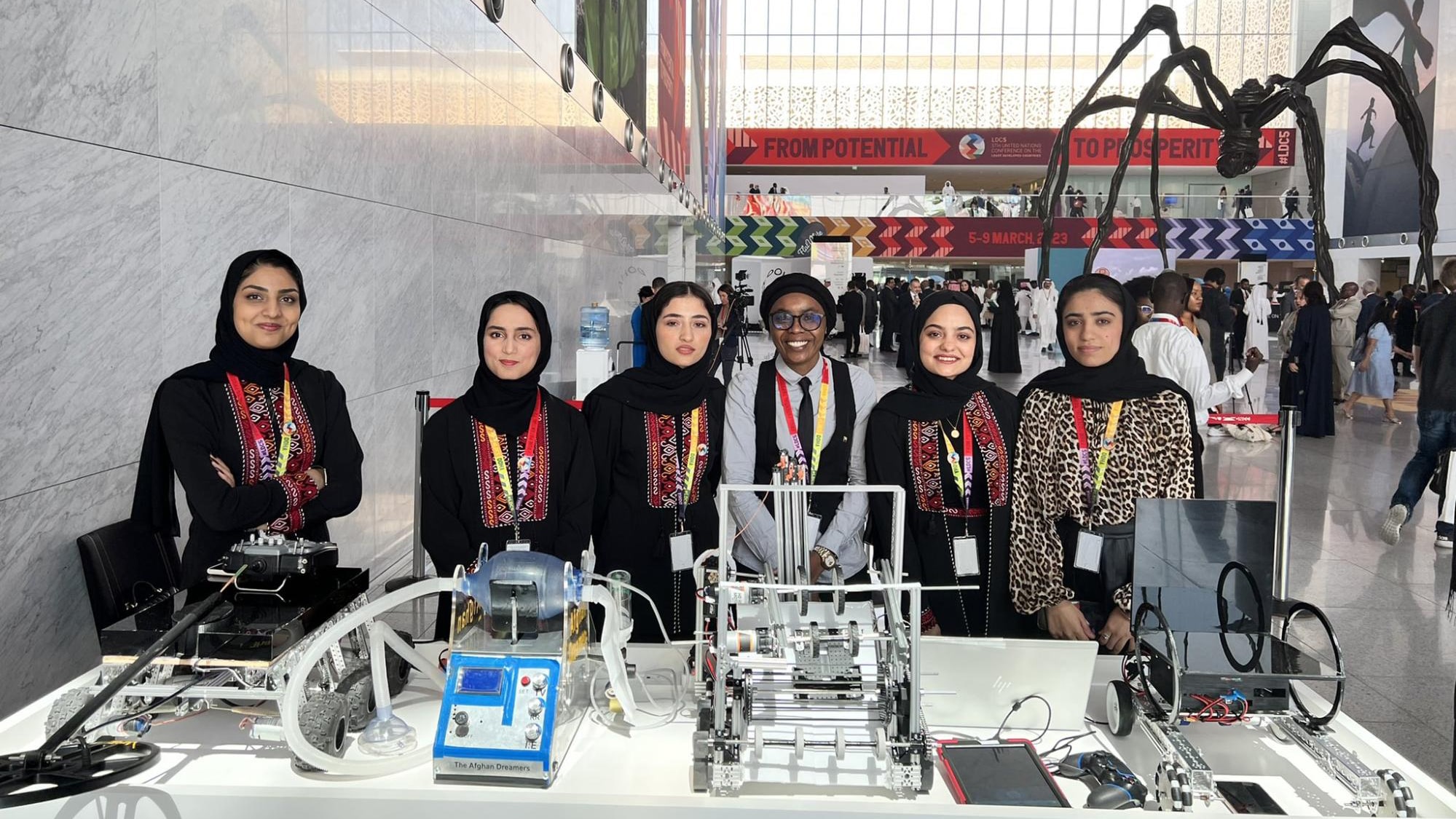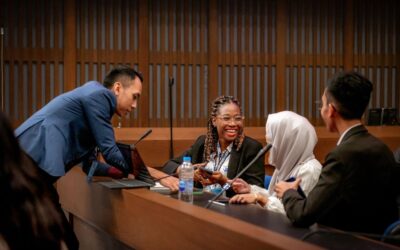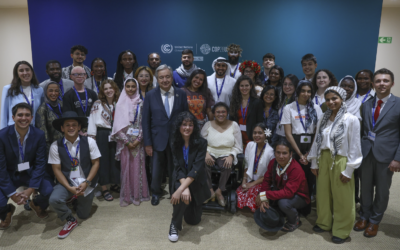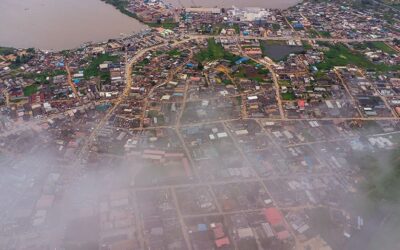By Armel Azihar Sly-vania and Saru Duckworth
Young people in Least Developed Countries (LDCs) have the jobs solutions to reach their marginalized peers – now, decision makers must commit to leave no one behind.
Young people are twice as likely to live in poverty as adults, and more than three times as likely to lose their jobs. While these impacts are global, they are felt hardest by marginalized and poor youth in the world’s 46 Least Developed Countries (LDCs). When these young people are not supported with strategies and policies that meet their multidimensional needs and support them into sustainable livelihoods, they risk being left behind for good.
Young LDC activists are joining the race against time to reach these populations and achieve SDGs 1 (eradicating poverty) and SDG 8 (decent work), by mobilizing together across multilateral platforms. And they aren’t just ready to change the world – they’re already doing it.
At the 5th United Nations Conference on the Least Developed Countries (LDC5) in March, a Youth Declaration was adopted by young LDC delegates in the first-ever Youth Forum. It reflects recommendations for governments to implement youth policies and solutions, generated through #ForAllGenerations consultations with young LDC delegates.
At the same time, over 400 young innovators from around the world came together for a two-week Big Brainstorm to design radical solutions and launch action groups for the SDGs. Two of the strongest initiatives on jobs and opportunities were led by youth from LDCs Nepal and Zambia, each providing tangible examples of how we can implement the Declaration’s recommendations for marginalized youth.
These solutions and other effective youth programs can light the way for policymakers to fulfill the most urgent recommendations of the LDC Youth Declaration and ensure marginalized youth are not left behind.
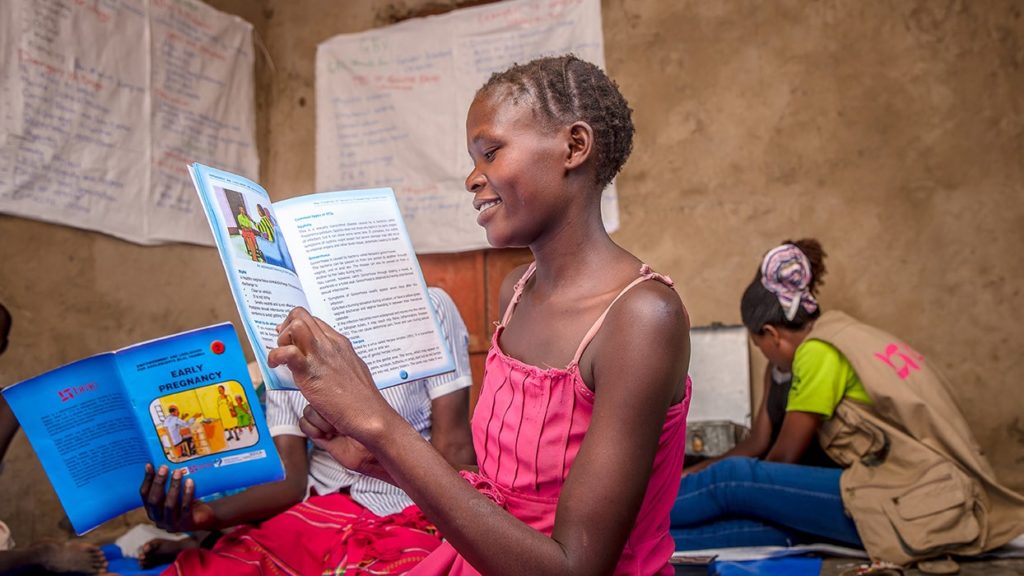
LDC Youth Declaration Recommendation
Recognize and reach marginalized young people who are not in employment, education or training (NEET) with targeted strategies and policies, especially women.
Youth solution
Young women are overrepresented in the population of youth outside of formal systems for jobs and opportunities, often shut out due to repressive gender roles and social norms. To include them, we need integrated approaches that increase social empowerment alongside economic development.
BRAC, a member of the Unlock the Future Coalition supporting the Big Brainstorm, has a rigorously tested model, Empowerment and Livelihoods for Adolescents (ELA), that has been implemented for over 15 years as an integrated approach for adolescent girls and young women. Evaluations of the approach reveal that strategies such as providing adolescent girls and young women safe spaces near their homes to socialize, giving them access to a near peer mentor and training them in life skills and livelihoods are vital to long term transformation and resilience for youth.
Young Zambian innovator Florence Lungu drew inspiration from ELA’s core elements to refine her Empower HER program for women’s livelihoods during the Big Brainstorm. Now connected to a global team of change makers and mentors, she is ready to launch her program and establish small skills hubs in shanty towns around Lusaka. Florence Lungu’s initiative features youth mentors training marginalized girls in desired livelihoods along with basic digital and life skills to be able to open sustainable businesses. She is inspiring youth in other LDCs looking to adapt proven approaches to help young women gain financial independence on their own terms.
“Gender equality is good economics. It is good in and of itself, but also has spillover effects. Women empowered can be agents of change for the good.”
Victoria Kwakwa, World Bank VP for Eastern and Southern Africa at LDC 5
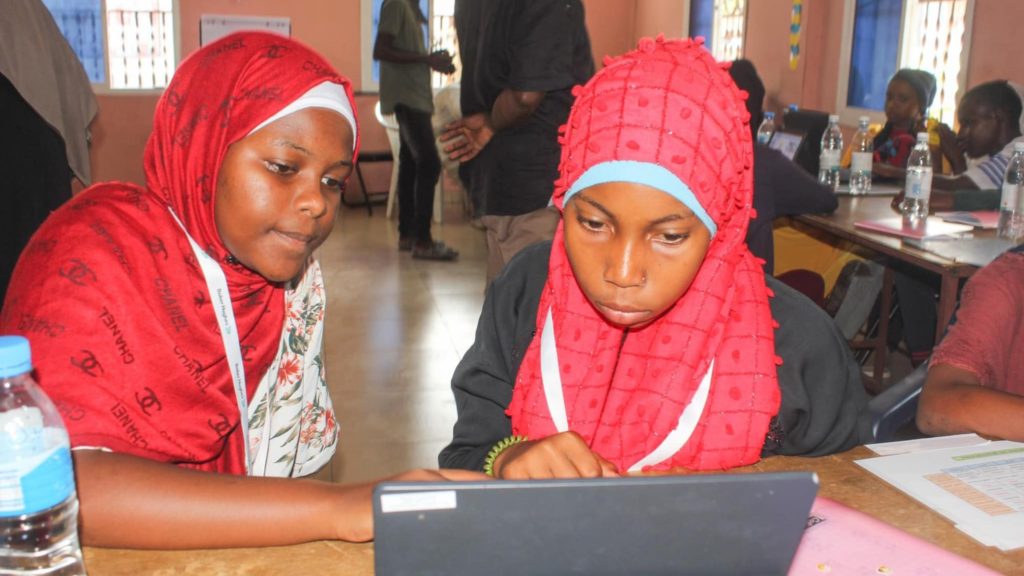
LDC Youth Declaration Recommendation
Enhance youth skills education, including both technical and soft skills development and coaching / mentoring programs, mindful of marginalized groups and gender stereotyping.
Youth Solution
Youth development programs fuel cycles of exclusion if they don’t address gender stereotyping and marginalization in the workforce head on. IMARA Comoros, a women and youth-led NGO in one of the smallest LDCs, breaks harmful patterns by ‘developing young people beyond school,’ using experiential and game-based learning in leadership, STEM, and arts skills to prepare marginalized young women for the workforce.
In training girls and young women ranging in ages from 5-25, they first ask them what they want to be in the future. Out of a cohort of 20 girls, rarely does anyone aspire to jobs other than being a teacher, nurse, or caretaker. But when shown videos of young girls like them practicing medicine, building robots, or working in traditionally “male” roles like driving, their list of desired jobs instantly grows and becomes impossible to contain. Ongoing connections to youth mentors working in their desired fields and hands-on training to create solutions under pressure, like lighting a bulb without electricity or using a tablet to program a simple robot, show these young women their own ability to make their dreams reality.
By emphasizing leadership and public speaking skills for participants, the program expands its impact to other marginalized youth. After skills sessions, young girls are sent back to their communities to establish youth leadership clubs and public speaking programs to teach their peers, meeting young people where they are and fostering community learning.
“STEM has no gender and everyone is capable.
Armel Sylva, STEM Coordinator at IMARA Comoros and Youth Delegate at the LDC 5 Youth Forum
There shouldn’t be any excuse for inclusive education.”
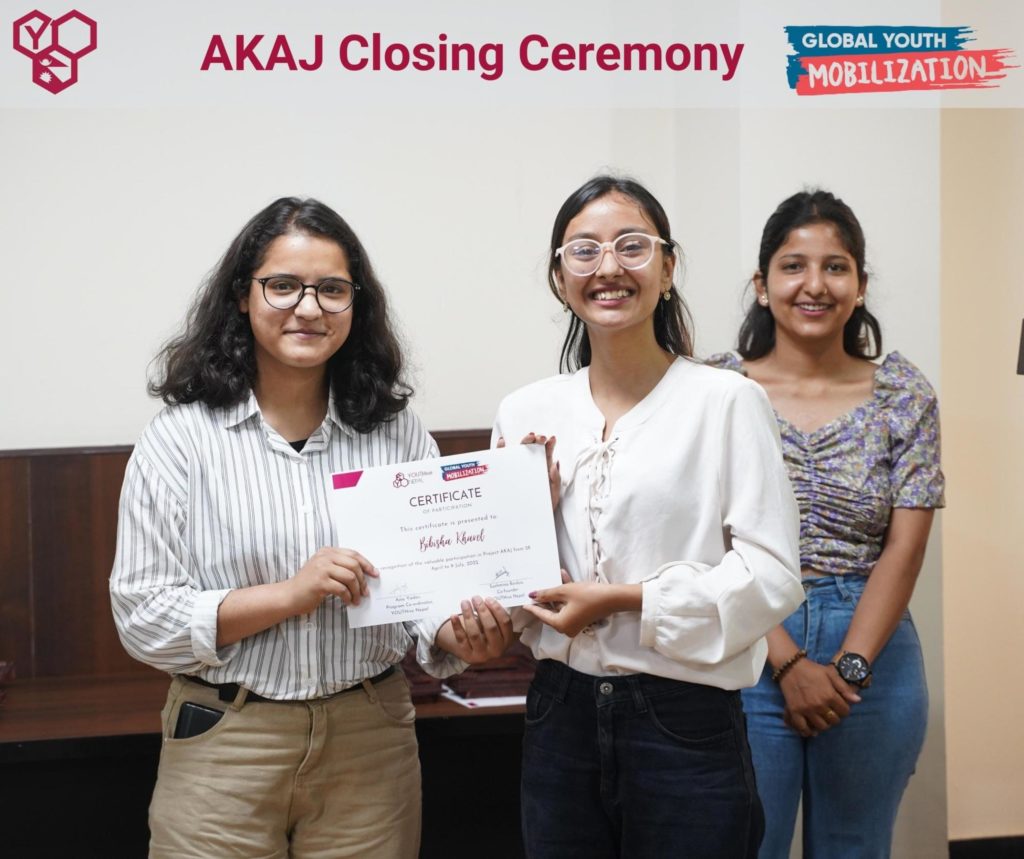
LDC Youth Declaration Recommendation
Develop accessible programmes that can connect youth to a network of private sector companies, building bridges to learning and placement opportunities in the job market.
Youth Solution
To reclaim the lost potential of millions of talented young workers migrating out of developing economies, we need accessible programs that help youth bridge difficult transitions into the workforce. These especially need to target and support marginalized youth, who face added struggles to break through rigid hierarchies and power structures.
Young innovator Sushmina Baidya and the Youthive team in Nepal, one of the most underdeveloped LDCs, are disrupting this cycle by providing a free package of support for unemployed youth ages 17-21 to help them transition between leaving school and finding work. Her successful pilot program, Project AKAJ, trains youth in a holistic skill development and job readiness curriculum, and places them with a growing network of host organizations through which they can explore their skills and areas of interest.
After incubating their initiative during the Big Brainstorm, they hope to place new cohorts of youth from diverse backgrounds in positions across marketing, education, social work, and other exciting fields to which they would otherwise have limited access. Along the way, youth are encouraged to explore their passions and connect to their purpose, unlocking their potential to revitalize domestic economies.
Our multilateral system emphasizes the importance of engaging and elevating youth voices in decision making, and as a result, major strides have been made in youth participation at high level moments. But engagement alone is no longer enough. Now, the fight for youth means making sure we aren’t leaving these spaces with just a pat on the back – our ongoing involvement is needed to make sure that our recommendations are taken up by policymakers and applied to real solutions and strategies.
These LDC youth solutions not only prepare marginalized youth for the future of work, but also with the skills and confidence for effective future intergenerational dialogue through these platforms. As we continue to mobilize around youth solutions ahead of the UN General Assembly, and ensure no one is left behind, we hope governments and decision makers will meet us there as partners.
Want to collaborate with us and other young leaders to ensure no one is left behind in the future of jobs and economic opportunities?
You can follow the work of the Jobs Action Group and LDC Youth Delegates on social media, and get in touch with us here.
Authors
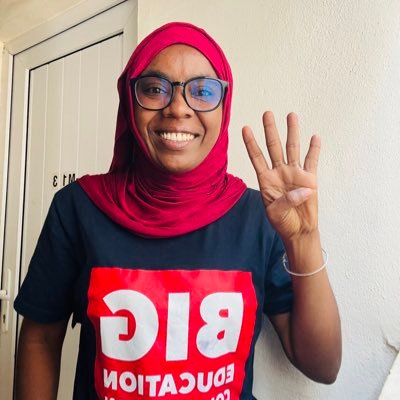
Armel Azihar Sly-vania
LDC5 Youth Delegate and STEM Coordinator at IMARA Comoros
Armel is a youth education activist and feminist with a strong track record in youth engagement, leadership and communications. She is an Interpreter by profession. She currently works with IMARA Comoros where the crossroads of STEM, Arts and Leadership meet. She is a media consultant and STEM educator, and has also served as a champion and youth ambassador on sexual and reproductive health, mentorship and leadership building of young people in regional processes and STEM. She is the Head of the Science, Technology and Education Cluster at the Southern Africa Youth Forum, a member of the SDG4 Youth Network advocating for quality and inclusive education for all and a co-leader of STEM/ Digital Divide at TE hosted by UNGEI.

Saru Duckworth
UN Foundation Next Generation Fellow for Jobs
Saru is a Nepalese American researcher and development worker, passionate about maintaining a lens on the most marginalised and often left behind communities. She is 24 years old and a Senior Associate for Policy & MEL with BRAC’s Ultra-Poor Graduation Initiative, where she works to scale sustainable livelihoods programs for extreme poor women with governments across the Global South.
